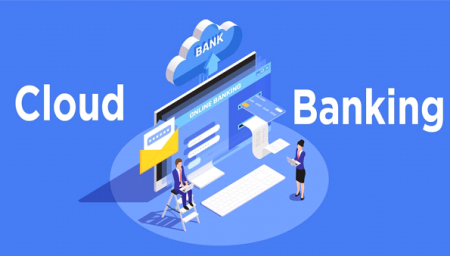When Amazon announced Infrastructure as a Service in 2006 the industry hailed the IaaS tool and Cloud as the most innovative of its time. But is Cloud still relevant for organizations wanting to build scale, resilience, and innovation? It may be, here’s why.
Cloud Computing in recent days has become more of a given. Back in the days of 1960s until the early 2000s Cloud or software as a service was touted as the game-changer for the enterprise world. Things moved at a brisk pace with Amazon building an infrastructure service tool as early as 2006. The Cloud, like many CTOs and CIOs quip had commenced raining dividends for the enterprise. But is Cloud still relevant for the enterprises of 2022?
In the last two years of the pandemic the Finance market has been increasingly busy in reimagining its offerings. Surprisingly, there has been another set of people who have been equally busy and creative — the cyber criminals. Last year alone, the global average cost of data breaches is $3.86 million.

The Finance market alone faced an average destruction of $5.85 million. Healthcare and energy sectors were more affected than the Finance market. What is more worrisome is the growth in attacks. According to a recent VMware report 54% of surveyed financial institutions experienced destructive attacks, a 118% increase compared to 2020.
Cost of Ignorance
In a highly decentralized market, the impact of a fraud acts as a domino effect. With Finance, the domino impact is higher given how attractive the sector is for cybercriminals. Basically, this is where the money is! Coupled with the amount of personally identifiable information (PII) held by fintech companies, this makes the finance market a highly alluring target and where data security steps in.

Besides loss of money, the repercussions of a data breach include loss of business, damaged reputation, data recovery costs, loss of credibility and customer trust, etc. Clients and customers have always needed to know their money, investments, and PII, are as safe and secure as possible.
But with more and more financial transactions taking place online or via mobile applications, and as we become increasingly cashless, innovations in cloud services have a vital function in financial data security.
Digital Transformation: How & When
It is important to acknowledge the challenges of ‘how’ and ‘when’ to adopt cloud technology can hold back digital transformation within an organization. However, if thought of as a business strategy rather than a technology strategy, companies are able to position themselves for scalable, flexible and agile business growth, for both short- and long-term benefits.
In addition Gartner reports that 69% of business leaders say “digital initiatives are accelerating, with a general expectation of dramatic transformation by 2026”. It’s clear that for the finance market, technology will have a significant role in keeping several steps ahead of the increasingly sophisticated forms of attack.
Already, fintech has positively impacted many aspects of the financial industry, including automation, AI, machine-learning, virtual assistants, blockchain and cryptocurrency, and omnichannel customer communication. But it doesn’t end there.
There is an increased demand to modernize core technology infrastructures, as consumers rapidly become more reliant on 24×7 mobile banking and decentralized finance (DeFi). Investing in digital platforms and cloud applications provides opportunities that not only improves data security, but also improves agility, scalability and resilience.
Cloud in enabling Fintech workflows
The Cloud use-case in banking is already known but within the fintech space.
There is more to Cloud than the perception of it being an enabler for myriad processes. Cloud, for instance, is taking an active role in growing informational and operational technology to keep up with changing demands. Many fintech companies are benefiting from the advantages cloud computing provides, for example automating post-closing audit workflows. One of the major benefits of Cloud is complying with regulations. ISO 27001 certified and credible cloud services providers can demonstrate ways of how it meets increasingly stringent policies for the financial practice.
Besides compliance, Cloud enables for improved data security. Deploying cloud services designed to protect against cyber threats and data breaches these days incorporate new-gen strategies such as disaster recovery plans and creative ways to detect anomalies by via artificially curated models and simulations.

A Cloud based workflow model can go beyond the traditional data analytics models to incorporate advanced data management tools, predictive analysis and dashboards that can enable intelligent business decisions. Above all, Cloud has the potential to be optimized and tailor-made in such a manner that it can control costs, meet fluctuating demand and mitigate risks thereby helping improve transparency and performance.
With a combination of cloud managed services, cloud computing in fintech can help drive innovation, efficiencies, increase productivity, maximize business growth and security, and instil confidence and customer loyalty. Having said that, integrating the functionalities needed to achieve such improvements becomes increasingly difficult for legacy or on-premise workloads.
These days, it’s almost impossible to escape the integration of some degree of cloud services – but whether an organization prefers a hybrid or multi-cloud approach, cloud computing can help finance organizations stay relevant and resilient in order to achieve greater business success and customer satisfaction.
Gautam Ghai is a Co-CEO and Co-Founder at SourceFuse, a cloud solutions service provider. Opinions are that of the author and should not be construed as an official view of this publication.










1 Comment
Thank you for sharing the information about Cloud in enabling Fintech workflows , it is good article, keep sharing.